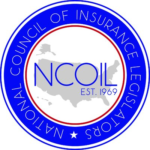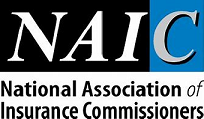Downsizing Citizens, NAIC & NCOIL updates
Citizens Property Insurance Corporation is looking for new ways to improve on its continued success in reasonably moving policies to the private market. The state-backed insurer of last resort also reports promising signs that Assignment of Benefits (AOB) reform in Florida is working, while new litigation shrinks to pre-Hurricane Irma levels. It tops this week’s Insurance Digest.
 Citizens: The Citizens Board of Governors last week decided to seek an outside review of its operations, in a quest to further reduce its policy count. It currently sits at 444,000 policies (about 11% of the residential market), down from a high of 1.5 million policies in 2011 (then 23% of the market).
Citizens: The Citizens Board of Governors last week decided to seek an outside review of its operations, in a quest to further reduce its policy count. It currently sits at 444,000 policies (about 11% of the residential market), down from a high of 1.5 million policies in 2011 (then 23% of the market).
The idea came from a suggestion by Senator Jeff Brandes (R-Pinellas) that Citizens engage a study to determine if transitioning to becoming a reinsurance company, or service organization, of even both, could further reduce policy count and better serve existing customers.
Meanwhile, Citizens reports last spring’s legislative AOB reform seems to be working. Since the new law took effect July 1, there are fewer overall AOB claims and most filed now are compliant with the new law. Citizens’ new litigation is down 24% so far from the same period last year (now averaging 844 lawsuits per month vs. 1,114) to “pre-Irma levels”. Yet FNOL from Irma are still being made – in fraud-plagued tri-county South Florida, of course. Citizens says its Managed Repair Program is catching on nicely, too.
 NCOIL: The National Council of Insurance Legislators (NCOIL) met last week to discuss the latest draft of a Private Flood Insurance Model Act. It’s designed to encourage states to adopt a simple regulatory framework, based on Florida’s successful model, to spur growth of private insurance as a much needed alternative and to complement the National Flood Insurance Program (NFIP). Only 15% of American homeowners had a flood insurance policy in 2018.
NCOIL: The National Council of Insurance Legislators (NCOIL) met last week to discuss the latest draft of a Private Flood Insurance Model Act. It’s designed to encourage states to adopt a simple regulatory framework, based on Florida’s successful model, to spur growth of private insurance as a much needed alternative and to complement the National Flood Insurance Program (NFIP). Only 15% of American homeowners had a flood insurance policy in 2018.
LMA has played an active role with Model Act sponsor, Florida Rep. David Santiago, to require agents play an active role in educating consumers. It’s been a contentious issue, as we’ve reported, and this meeting was no different, but this time the concern was about rates. The Act doesn’t require prior rate approval and one legislator voiced concern that it might turn out like Long-Term Care insurance, with unregulated rate growth. We argue that’s not an apt analogy – if private insurance becomes too expensive, the consumer will simply buy it from the NFIP.
 NAIC: Co-located at the NCOIL meeting, was the National Association of Insurance Commissioners (NAIC) fall meeting. It too, discussed private flood insurance, within its own draft white paper Considerations for State Insurance Regulators in Building the Private Flood Insurance Market. The draft relies heavily on, and includes Florida’s flood statute and rate and form filing process examples.
NAIC: Co-located at the NCOIL meeting, was the National Association of Insurance Commissioners (NAIC) fall meeting. It too, discussed private flood insurance, within its own draft white paper Considerations for State Insurance Regulators in Building the Private Flood Insurance Market. The draft relies heavily on, and includes Florida’s flood statute and rate and form filing process examples.
The current draft includes implementing specific continuing education requirements for producers and conducting agent and lender education. It falls short of mandating agents educate consumers, noting instead “it is critical for agents to make a special effort to educate homeowners regarding the need for flood insurance, even if a business or home is not located in a high-risk flood zone.”
The Catastrophe Insurance (C) Working Group adopted the white paper. It now goes to the full Property and Casualty Insurance (C) Committee, with ongoing feedback from stakeholders, including reinsurers.
Congratulations: LMA congratulates Florida Insurance Commissioner David Altmaier for being voted NAIC President-Elect, with South Carolina Insurance Director Ray Farmer becoming President, effective January 1. We admire Commissioner Altmaier for his calm hand and focused consumer protection platform, marks of a seasoned regulator.
LMA Newsletter of 12-16-19

